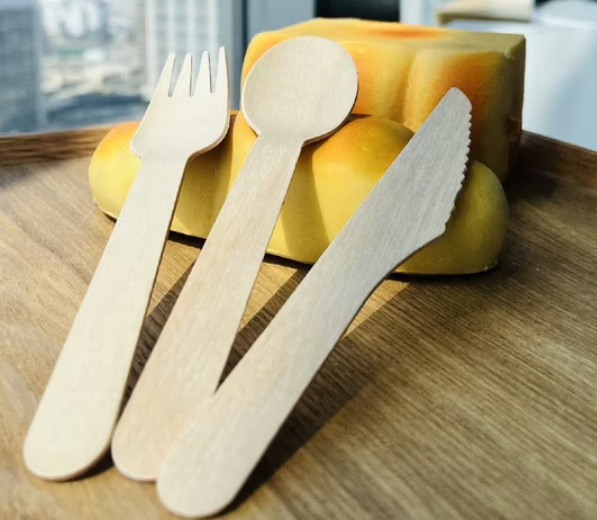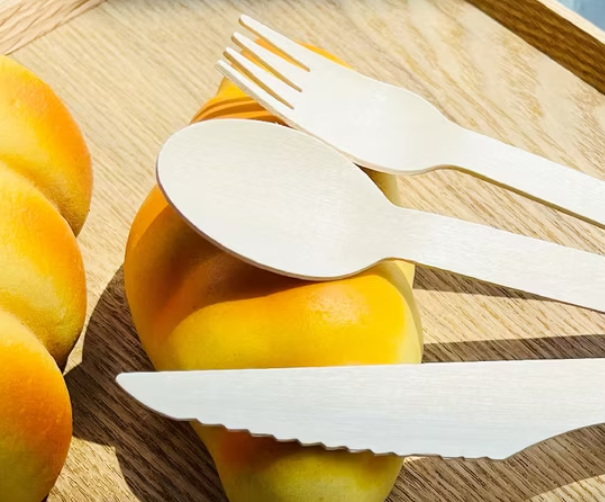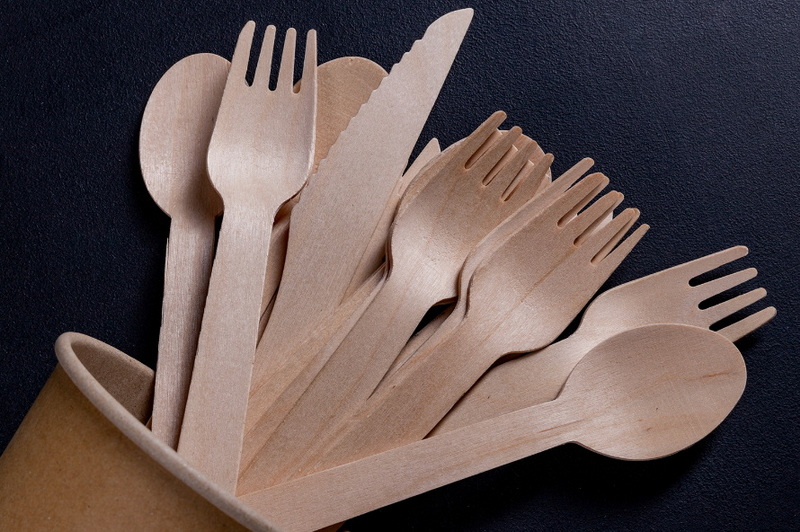
Content Menu
● Introduction to Disposable Wooden Utensils
>> Benefits of Disposable Wooden Utensils
● Key Factors to Consider When Choosing Disposable Wooden Utensils
>> 1. Material Quality
>> 2. Finish and Polishing
>> 3. Sturdiness
>> 4. Smooth Edges
>> 5. Packaging
>> 6. Certifications
>> 7. User Reviews
>> 8. Heat Resistance
>> 9. Biodegradability
● Manufacturing Process of Disposable Wooden Utensils
>> Steps in Manufacturing:
● Customization and Design Options
>> Customization Benefits:
● Environmental Impact of Disposable Wooden Utensils
>> Environmental Benefits:
● Market Trends and Future Outlook
>> Market Trends:
● Conclusion
● FAQs
>> 1. What materials are best for disposable wooden utensils?
>> 2. How do I ensure the wooden utensils are safe for food use?
>> 3. Can disposable wooden utensils be reused?
>> 4. What certifications should I look for in disposable wooden utensils?
>> 5. How do I dispose of disposable wooden utensils?
Choosing high-quality disposable wooden spoons and forks is crucial for both environmental sustainability and user satisfaction. These eco-friendly utensils have become increasingly popular as alternatives to plastic, offering a biodegradable and compostable solution for various events and daily use. In this article, we will explore the key factors to consider when selecting high-quality disposable wooden spoons and forks, along with insights into their manufacturing process and benefits.

Introduction to Disposable Wooden Utensils
Disposable wooden spoons and forks are made from sustainable materials like birch or bamboo, which are known for their strength and durability. These materials are not only eco-friendly but also provide a natural aesthetic that enhances dining experiences. The use of wooden utensils dates back centuries, but their modern application in disposable form has gained significant attention due to environmental concerns.
Benefits of Disposable Wooden Utensils
1. Eco-Friendly: Disposable wooden utensils are biodegradable and compostable, reducing plastic waste and promoting environmental sustainability.
2. Durability: High-quality wooden utensils are sturdy and can withstand various food types without breaking easily.
3. Aesthetic Appeal: Wooden utensils add a natural touch to table settings, making them ideal for events and outdoor activities.
Key Factors to Consider When Choosing Disposable Wooden Utensils
When selecting high-quality disposable wooden spoons and forks, several factors should be considered:
1. Material Quality
- Sustainable Materials: Look for utensils made from sustainably sourced birch or bamboo. These materials are strong, durable, and eco-friendly.
- Smooth Finish: Ensure the wood is smooth and free from splinters or cracks, which can pose safety risks.
2. Finish and Polishing
- Polishing: Well-finished and polished utensils are smoother and more comfortable to use.
- Coatings: Check for any coatings or finishes applied to the wood. They should be food-safe and free from harmful chemicals.
3. Sturdiness
- Thickness: Thicker utensils are generally more durable.
- Flexibility: High-quality wooden utensils should have some flexibility without breaking easily.
4. Smooth Edges
- Examine the edges of the utensils. They should be smooth and well-defined to prevent discomfort during use.
5. Packaging
- The packaging can indicate the manufacturer's attention to detail. Well-packaged sets suggest a focus on product quality.
6. Certifications
- Look for certifications like FSC (Forest Stewardship Council), which ensure the wood comes from responsibly managed forests.
7. User Reviews
- Check online reviews and customer feedback to gain insights into the product's performance and quality.
8. Heat Resistance
- If you plan to use the utensils for hot foods, ensure they are heat-resistant to prevent warping or breaking.
9. Biodegradability
- Ensure the utensils are fully biodegradable and compostable to align with eco-friendly practices.
Manufacturing Process of Disposable Wooden Utensils
The manufacturing process involves selecting high-quality wood, harvesting, debarking, cutting into smaller sections, and shaping into utensils. The wood is typically dried to reduce moisture content before being shaped and polished. This process ensures that the final product is durable and resistant to moisture.
Steps in Manufacturing:
1. Harvesting: Wood is harvested from sustainably managed forests.
2. Debarking: The bark is removed to prepare the wood for processing.
3. Cutting: The wood is cut into smaller sections suitable for utensil production.
4. Shaping: The wood is shaped into spoons and forks using specialized machinery.
5. Polishing: The utensils are polished to achieve a smooth finish.

Customization and Design Options
Many suppliers offer customization options, including different sizes, shapes, and packaging styles. This allows businesses and event planners to personalize their wooden utensils with logos or specific designs, enhancing brand visibility and event themes.
Customization Benefits:
- Branding: Custom designs can include logos or branding elements, making them ideal for corporate events.
- Event Themes: Utensils can be tailored to match specific event themes, adding a cohesive touch to table settings.
Environmental Impact of Disposable Wooden Utensils
Disposable wooden utensils have a significantly lower environmental impact compared to plastic utensils. They are biodegradable and compostable, reducing plastic waste in landfills and oceans. This shift towards sustainable utensils supports global efforts to combat climate change and promote eco-friendly practices.
Environmental Benefits:
- Reduced Plastic Waste: Wooden utensils replace plastic, reducing the amount of non-biodegradable waste.
- Compostable: They can be composted, returning nutrients to the soil and reducing landfill waste.
Market Trends and Future Outlook
The demand for disposable wooden utensils is increasing as consumers become more environmentally conscious. This trend is expected to continue, with more businesses adopting sustainable practices in their operations. As technology advances, manufacturing processes may become more efficient, making these eco-friendly utensils more accessible and affordable.
Market Trends:
- Increased Demand: Growing consumer awareness about environmental issues is driving demand for sustainable products.
- Technological Advancements: Improvements in manufacturing technology could reduce production costs and increase availability.
Conclusion
Choosing high-quality disposable wooden spoons and forks involves considering factors such as material quality, finish, sturdiness, and certifications. These eco-friendly utensils not only enhance dining experiences but also contribute to environmental sustainability. By selecting the right disposable wooden utensils, individuals and businesses can promote a greener lifestyle while ensuring user satisfaction.

FAQs
1. What materials are best for disposable wooden utensils?
High-quality disposable wooden utensils are typically made from sustainable materials like birch or bamboo. These materials are known for their strength, durability, and eco-friendliness.
2. How do I ensure the wooden utensils are safe for food use?
Ensure that the wooden utensils are made from non-toxic materials and have a smooth finish without splinters or cracks. Also, check for any food-safe coatings or finishes applied to the wood.
3. Can disposable wooden utensils be reused?
Disposable wooden utensils are generally recommended for single use only. While they can be washed, repeated use may lead to wear and tear, compromising their quality and safety.
4. What certifications should I look for in disposable wooden utensils?
Look for certifications like FSC (Forest Stewardship Council), which ensure that the wood comes from responsibly managed forests, promoting sustainable forestry practices.
5. How do I dispose of disposable wooden utensils?
Disposable wooden utensils are biodegradable and compostable. They can be composted in home or commercial composting facilities, reducing waste and promoting environmental sustainability.

















